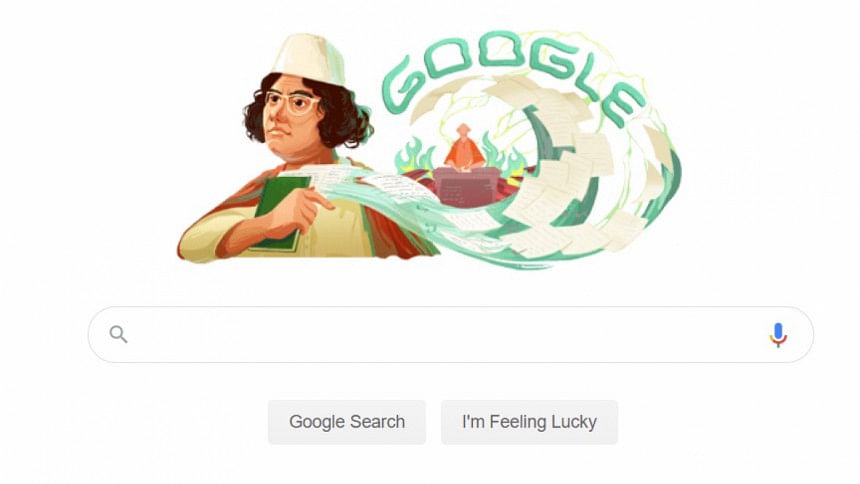Google Doodle celebrates Nazrul’s 121st birthday

Google is celebrating the 121st birthday of Bangladesh's National Poet Kazi Nazrul Islam with a doodle.
Google Doodle made an alteration on its Bangladeshi homepage today, showing the 'Bidrohi Kobi' (rebel poet) holding a green notebook while another avatar of the poet writing up a storm of verses in the background.
Born on May 25, 1899 at Churulia village in Burdwan district of West Bengal in India, Nazrul had inspired people to fight with valour against injustice and repression of the colonial rule through his writings.
Nazrul's words inspired Bengalis to join all democratic movements, including the anti-British movement, the Language Movement, the mass uprising in 1969, and the Liberation War in 1971.
Nazrul's rebellious writing -- much of which he published in his own magazine, "Dhumketu" (The Comet) -- resulted in frequent imprisonment, which in turn inspired one of his most well-known works, "Rajbondir Jobanbondi" (The Deposition of a Political Prisoner, 1923).
He used his platform to combat bigotry in all its forms, and through his poetry supported the call for equal rights of women at a time when few of his peers were willing to do the same.
Nazrul wrote some 4,000 songs, which brought him national popularity and spawned an entirely new genre called 'Nazrul Geeti' (Songs of Nazrul).
For his incredible literary contributions, Nazrul was named the National Poet of Bangladesh in 1972.

 For all latest news, follow The Daily Star's Google News channel.
For all latest news, follow The Daily Star's Google News channel. 








Comments